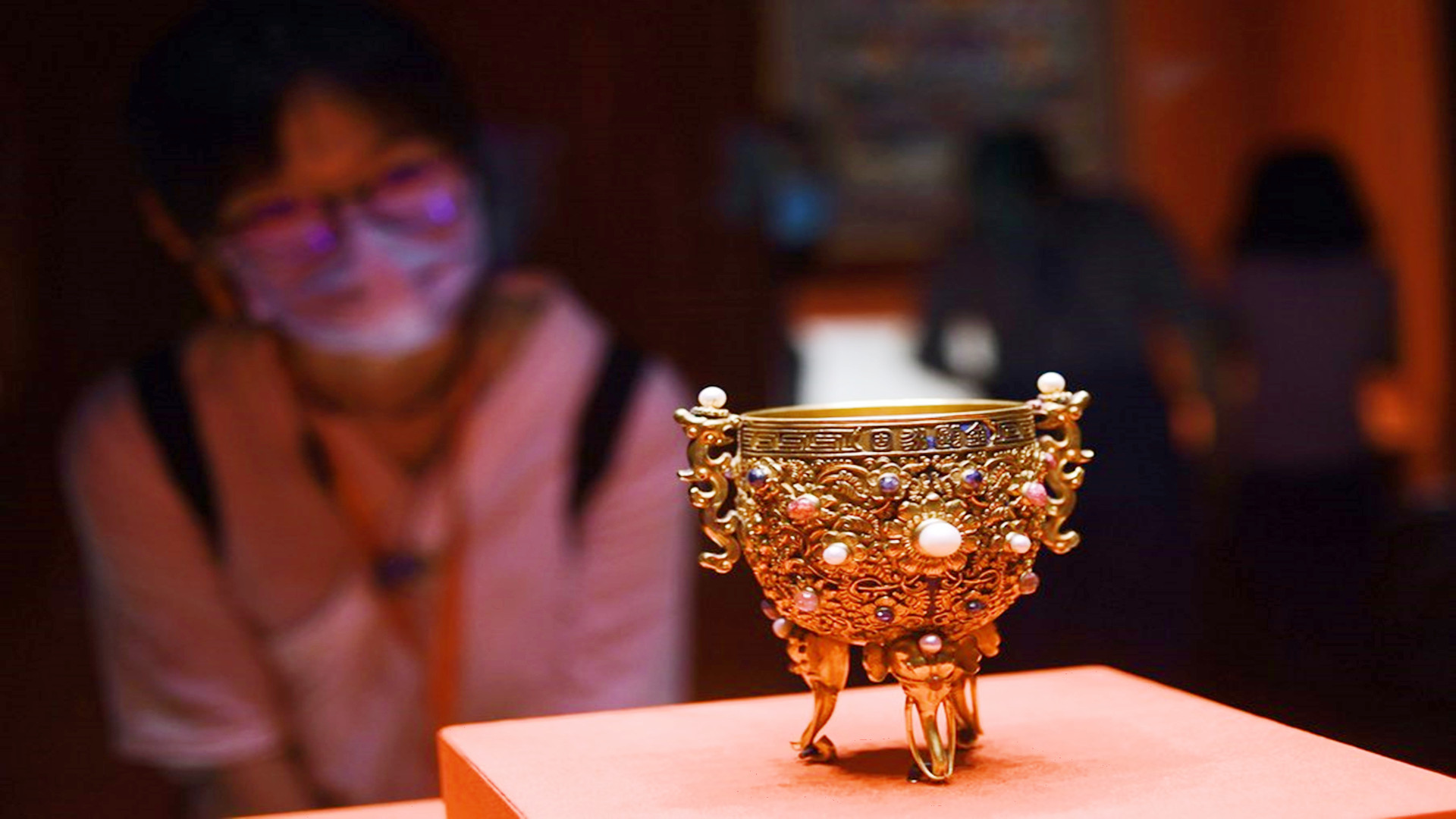
Xi Focus: Xi stresses utilization of cultural relics, preservation of fine accomplishments of Chinese civilization(1)
BEIJING, July 9 (Xinhua) -- Chinese President Xi Jinping has stressed the better utilization of cultural relics to promote exchanges and mutual learning between civilizations and the preservation of the fine accomplishments of Chinese civilization.
Xi, also general secretary of the Communist Party of China (CPC) Central Committee and chairman of the Central Military Commission, made the remarks Friday in a letter replying to senior experts at the National Museum of China (NMC) on the occasion of the 110th anniversary of the museum.

Photo taken with a mobile phone shows a view in the Palace Museum in Beijing, capital of China, Sept. 1, 2020. (Xinhua/Meng Chenguang)
Offering warm congratulations and sincere greetings to the museum staff, Xi said his previous visits to the museum left him with a deep impression and he was pleased to learn that new progress has been made by the museum in the fields of collection, research, exhibitions and exchanges.
Noting the importance of museums in preserving and passing on human civilizations and the glorious mission and great responsibility shouldered by museum workers, Xi expressed his hope that the museum staff will stick to the correct political orientation, strengthen cultural confidence, step up research and be innovative in putting on exhibitions.
Xi called for making better use of cultural relics, including making them "alive," promoting exchanges and mutual learning between civilizations, and better preserving, passing on and showcasing the fine accomplishments of Chinese civilization.

A visitor views an exhibit at the Palace Museum in Beijing, capital of China, Sept. 10, 2020. (Xinhua/Jin Liangkuai)
He urged the museum workers to make new contributions to the development of China's museums, and the building of China into a country with a strong socialist culture.
With its precursor, the Preparatory Office of the National Museum of History, established in July 1912, the NMC was formed in 2003 as a result of the merger of the National Museum of Chinese History and the National Museum of Chinese Revolution, both on the east side of Tian'anmen Square.

